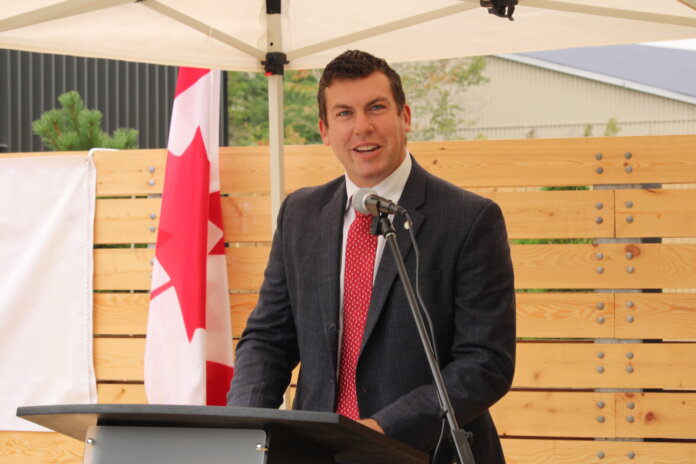KINGS-HANTS: The following is a statement issued by Kings-Hants MP Kody Blois on the ongoing tension withr egards to the fishery in Southwest Nova, involving fishers from Sipekne’katik.
“I am deeply concerned with the situation unfolding in Digby County as it relates to the violence, destruction of property, intimidation, and safety of all those involved. I condemn any form of violence as it has no place in solving the complex issue at hand.
“The news of a fire at a West Pubnico lobster pound suggests a worrisome trend of increased violence and destruction of property that will not solve this issue.
“I have been in regular contact with Chief Mike Sack in recent weeks as Sipekne’katik exercised its moderate livelihood treaty rights. I recognize that Sipekne’katik is having direct conversations with multiple federal ministers, but I have sought to maintain open communication with Chief Sack at the same time. This week Chief Sack asked me to intervene with officials to ensure that adequate resources from the RCMP are available in order to protect the safety of everyone involved.
“I spoke with Nova Scotia Justice Minister Mark Furey to relay Chief Sack’s concerns and he confirmed that the RCMP in Nova Scotia have the authority to draw upon additional resources in order to maintain public safety. I recognize the difficulty of policing a nuanced situation and while I appreciate the operational complexities, I publicly ask that the RCMP utilize necessary resources to protect public safety for everyone and to allow Sipekne’katik members in my constituency of Kings-Hants to practice their treaty rights.
“I also want to confirm my support for Sipekne’katik and its members in exercising their treaty right for a moderate livelihood. As outlined in my letter to Minister Jordan on September 22, the Supreme Court of Canada in the1999 decision of Marshall affirmed the right Mi’kmaq communities have by virtue of the Peace and Friendship treaties signed with the British crown.
“In my letter to Minister Jordan I also highlighted my appreciation for the concerns of commercial harvesters as it relates to creating a level of certainty of how moderate livelihood rights can be exercised for all those involved in the fishery. This includes certainty for indigenous communities and non-indigenous fishers alike.
“I recognize that the negotiation of moderate livelihood must be between the Government of Canada and indigenous communities directly, however, ensuring commercial harvesters have a voice on this issue while bringing the parties together could potentially help build the understanding and respect to diffuse the situation.
“Finally, the Supreme Court of Canada has given the Government of Canada the ability to create a “minimally impairing” regulatory framework for how Mi’kmaq communities can exercise their right. This can best be achieved by negotiation to reach an agreement. I understand from my conversations with Chief Sack that those negotiations have been positive, and I am hopeful that there is a path forward in partnership with Mi’kmaq communities to implement the right.
“My position remains that the ambiguity and uncertainty that has existed since the Marshall decision is at the very least a contributing factor to the violence and tension we have witnessed over the last 20 years. Whether by negotiation, or by implementing a minimally impairing regulatory framework in direct consultation with Mi’kmaq communities, my hope is that this can be the watershed moment to create the clarity and certainty needed for all of us to collectively move forward.
“True reconciliation means the implementation of the right affirmed by the Supreme Court of Canada which will require more civil conversation and less carnage and unnecessary aggression.”









